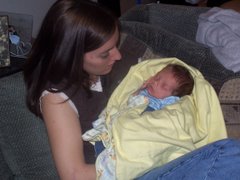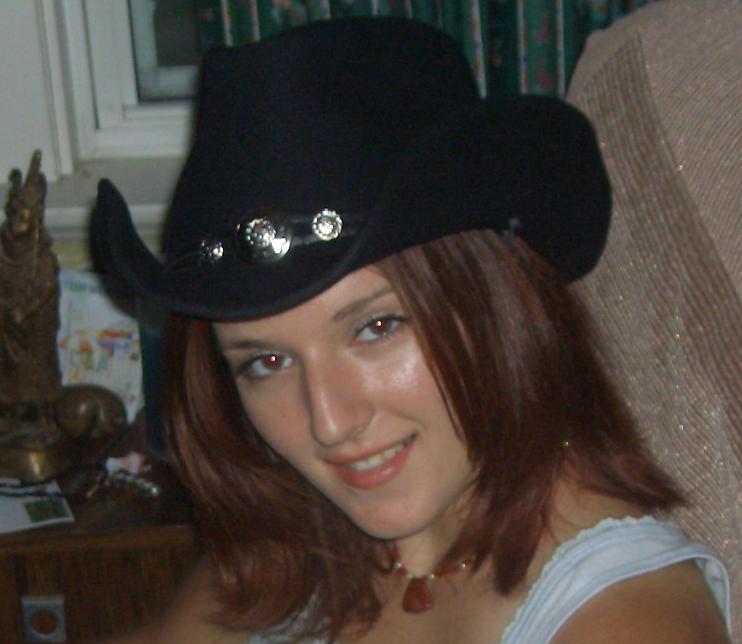I found this on CNN and thought it was just great!
In the U.S. Army -- which has so many acronyms, expressions and opaque phrases that it seems to deserve its own language -- there is one word that is quite possibly uttered more than any other.
That word is "hooah." Pronounced HOO-ah. Alternatively spelled hua and huah.
Attend a company command meeting, and you'll hear "hooah" uttered as often as a 15-year-old says "like" or "you know." Head to the post exchange and buy a Hooah Energy Bar or Hoo-Ahhs wet wipes or HOOAH2O water.
It's not just in Iraq. At U.S. bases around the world, hooah seems an inseparable element of Army life.
Just don't try to define it. And definitely don't try to figure out where it comes from.
"I believe it came from hurrah. It basically means everything from 'yes' and 'yes, sir,' to 'that's great,"' said Capt. James Lowe, public affairs officer for the 506th Regimental Combat Team. "You could use it as a generalized cheer. It's one of those multipurpose phrases -- when in doubt, say hooah."
That doesn't even begin to cover it.
They shout hooah to get motivated, and they whisper it when they concur with something someone just said. Hooah means you understood something, or is the proper reply when someone says "thank you." On the other hand, it may also be used to say "thank you."
Hooah is a catchall phrase that will get you out of any situation, particularly when receiving a scolding from a higher-ranking officer.
"You use it when you've got a flame on your butt and you're just trying to extinguish it," said Capt. Brian Buckner, 30, of Sumter, South Carolina.
Take this conversation, overheard recently outside the mess hall at Camp Rustamiyah, on Baghdad's eastern outskirts:
Soldier 1: How you doing?
Soldier 2: Fine. How you doing?
Soldier 1: Hooah.
'Air power!' doesn't have same punch
For the different branches of the military, each vastly competitive with and jealous of its distinctions from one another, hooah has become something of a sore point. Marines and sailors have their own saying, more of a "hoo-RAH" or a "hoo-yah," which they claim is entirely separate in origin.
The Air Force brass once reportedly got so irked about sharing "hooah" with the Army that it tried to get airmen to shout "Air power!" instead. But "Air power!" did not have the same potency as "hooah" and has been largely abandoned.
Sgt. Joe Carter, a 23-year-old from Kennett, Missouri, recalls how, after arriving at basic training, he and other young Army recruits attended a motivational talk from their commander.
"When we first got there, the commander gave a speech, and at the end he told us, 'I want to hear a loud and thunderous hooah!"' Carter said. "We were real pumped and amped up."
Yet the use of hooah by the uninitiated is generally frowned on. Carter recounted that a drill sergeant barred him and his fellow recruits from saying hooah until they had finished the basic course and earned the right.
And civilians uttering hooah are generally looked upon with either disdain or the astonishment of a person who has just heard a koala bear recite lines from e.e. cummings.
Where from, this 'hooah'?
As with any good word, the origins of hooah are highly disputed.
Some claim it derives from the military acronym HUA -- Heard, Understood, Acknowledged.
Another tale: When Army Rangers landed at Omaha Beach on D-Day in 1944, a sergeant ordered them to scale the cliffs looming above them and neutralize the German pillboxes perched on top. One soldier, aghast at the idea, responded, "Who, us?" Soldiers ended up following the order, in what became one of the most celebrated acts of World War II.
Then there's the theory that hooah comes from hurrah and hooray, themselves believed to be bastardizations of the sailor's cry "huzzah," which dates back to the 16th century.
With the Internet widening the forum for debate, blog entries suggesting definitions of hooah have been met with dozens upon dozens of comments from those who think they know better.
With all the derivations that exist, a few souls have tried to come up with an official meaning. One such half-serious, half-humorous definition, listed by the Urban Dictionary, reads in part: "U.S. Army slang. Referring to or meaning anything and everything except 'no.' Generally used when at a loss for words."
Lt. Col. Brian Winski, commander of the Army's 1st Squadron, 61st Cavalry Regiment, who sometimes says "hooah" so often it seems to have entered into his subconscious, isn't entirely satisfied with that definition, but says it will have to suffice.
"That's about right if you have to really box it in," he said. "I guess that's about as close as you could get."
Subscribe to:
Post Comments (Atom)


2 comments:
Haha!
HAHA! Thats Good! I remember when I first went to basic and I thought people were so weird for saying it (amoung other things that they said) our commander gave us the same motivational speech I think, along with the speech about the individual named pat who stole our gals back home while we were in the army... we were not told that we were not to say it. however we weren't allowed to call cadence when we marched because "we wheren't fit to be called soldiers yet"
Post a Comment